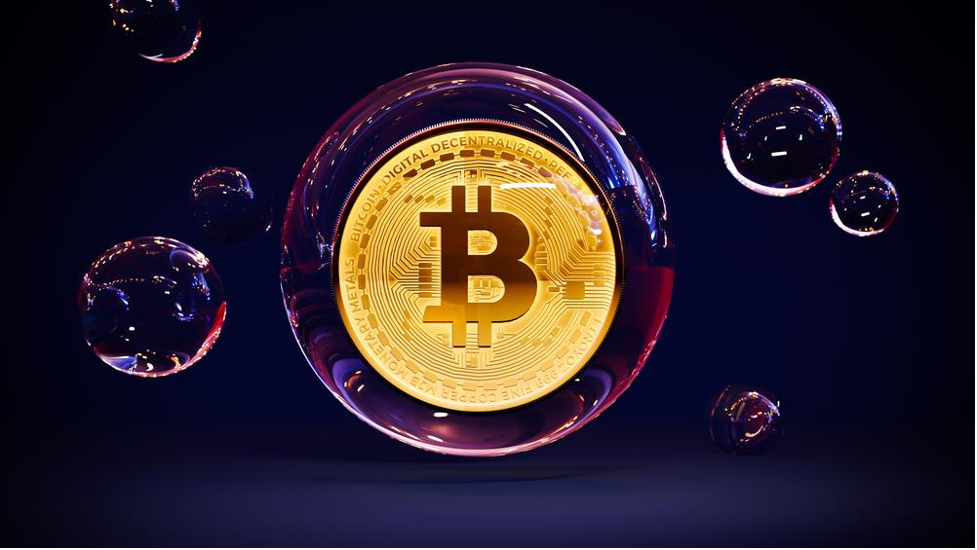
If you ever open the financial newspapers, you have undoubtedly read something about Private Credit Funds. For years, these inconspicuous lenders played a small role within the financial system, but this has changed since central banks’ interest rate increases.
The market is in a short time inflated to ~$1.7 trillion and the biggest danger? Private Credit Funds are subject to much less supervision than traditional lenders.
There is little transparency and they are in fact allowed to value their loans themselves. Can this bubble cause a new credit crisis? And what does that mean for Bitcoin?
Would you like to receive a free financial newsletter?
Do you want to easily stay informed of all important developments in the financial world and learn more about the economy?
Then subscribe for free to my newsletter De Geldpers.
Every Monday and Saturday you receive everything you need to know about the financial markets directly in your mailbox.
Trillion bubble remains under the radar
Not long ago, Private Credit Funds weren’t so sexy at all. They were the ones who got to eat “the leftovers” after a gigantic merger or takeover.
But after the massive interest rate hikes of the past two years, they are suddenly the new center of the financial industry. Unfortunately for central banks and governments, they are mainly an opaque center.
What makes people nervous is the “Private” part. Unlike banks, Private Credit Funds keep the loans in question on the balance sheet themselves. They are not traded, so the market prices of the loans cannot provide an indication of their health.
You could say that Private Credit Funds “check their own homework” and that is of course extremely dangerous when it comes to the financial world. Especially since this market has now inflated to a capital of 1.7 trillion dollars.
In America there are already examples of Private Credit Funds where there is disagreement about the valuation of the loans. For example, there was a situation where a loan was valued at 84 cents per dollar, while another party arrived at a valuation of 59 cents per dollar.
If that is the standard, then this market could be in much worse shape than we currently think.
What does this mean for the Bitcoin price?
It will come as no surprise that governments are very concerned about the rise of this industry, especially because it is so opaque. No one knows the status of the $1.7 trillion (and growing) in loans.
If this market explodes, the question remains to what extent it will affect the global economy. Is there a domino effect? Will this also cause normal banks to get into trouble? Will this immediately throw the economy into a deep recession?
These are all questions that cannot be answered and that is what makes it so difficult to do something with them. It is also difficult for central bankers and governments to prepare possible aid, because it is so unpredictable where exactly that aid is needed.
This may be a negative shock to the Bitcoin price in the short term, but in the long term, inflating this market will undoubtedly be bullish for the digital currency. Why? Because as this market grows, governments will soon have no choice but to come to the rescue when things threaten to blow up.
Would you like to receive a free financial newsletter?
Do you want to easily stay informed of all important developments in the financial world and learn more about the economy?
Then subscribe for free to my newsletter De Geldpers.
Every Monday and Saturday you receive everything you need to know about the financial markets directly in your mailbox.
Trade €10,000 for free and get a 10 euro bonus
Do you want to enter the crypto world and perhaps buy Bitcoin or another crypto? Then grab your chance now with this exclusive offer! Thanks to a special deal between Newsbit and Bitvavo, one of the most accessible and user-friendly crypto exchanges in Europe, our readers receive an exclusive offer.
Create an account with Bitvavo via the button below and receive a welcome gift of 10 euros completely free. And that’s not all – you also don’t pay trading fees on your first 10,000 euros in transactions. Register now!
Source: https://newsbit.nl/is-deze-bubbel-van-17-biljoen-dollar-een-gevaar-voor-het-financiele-systeem/

